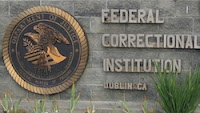Students are starting to hear back from the colleges they’ve applied to, and the early results aren’t all that different from recent years—lots of admits, a few denials, and more deferrals, where colleges want to see the most recent grades from an applicant before making a final decision.
The results may be different, but that doesn’t mean the students aren’t surprised. Thanks to an armload of media articles about the declining birthrate, some students made college choices based on the assumption that most colleges would welcome their application with open arms, and throw in a scholarship just for good measure. Fewer births in 2001 means fewer seniors in 2019—so what’s keeping a college from admitting every student who applies?
There are a couple of factors at play here. First, remember that the most selective colleges admitted less than ten percent of their applicants last year. This isn’t a lot of colleges, but most of them are the ones the media spends far too much time focusing on. This gives the impression that whatever is going on with these schools must be going on with every school—and if that’s the case, why didn’t my first-choice college take me?
This is where math comes in. Let’s say a college admitted 5% of its applicant pool last year, and had 25,000 applications. That means they admitted 1250 students.
Now, let’s say the birthright has a pretty extreme effect, so the college has 10% fewer applicants this year. That means they have 22,500 applicants. In order for that college to still admit 1250 students, they do indeed have to take a higher percentage of students—this year, they’d have to take 5.5% of their applicant pool, instead of the 5% they admitted last year. Not exactly a massive increase.
It’s also important to remember that birthrates and application numbers are two different things. We may have seen fewer babes eighteen years ago, but parental expectations about college continue to grow, and the choices parents had as high school students often aren’t seen as good enough for their children. That means more families break through self-imposed limitations every year, and decide their child is going to Go. For It. when it comes to applying to college. The increase in applicants at selective colleges has exceeded the increase in the birth rate for these last few years. What makes us think the decrease in birth rate is going to change that?
If anything, the changes in admission rates we’re expecting are much more likely to show up in the colleges that have long admitted many, if not most, of the students who apply. That might lead to a big increase in the number of admitted students, but if it does, that’s not much of a surprise. Most of these colleges have had empty beds for the last several years. If the birthrate scare finally forces more of them to start looking for more students in new parts of the country (and the world), most would argue that move is overdue—only being done by necessity.
Media coverage of the birthrate decline may seem to give students new reason to hope for admission to the school of their dreams, but a quick run of the calculator shows students are still better off understanding the limits of college dreams, and the necessity of college plans. You may be seeing more dashed dreamers in your office in the coming weeks. Go easy on them, and resist the temptation to lead with the calculator. Tissues are still the counselor’s best friend.












